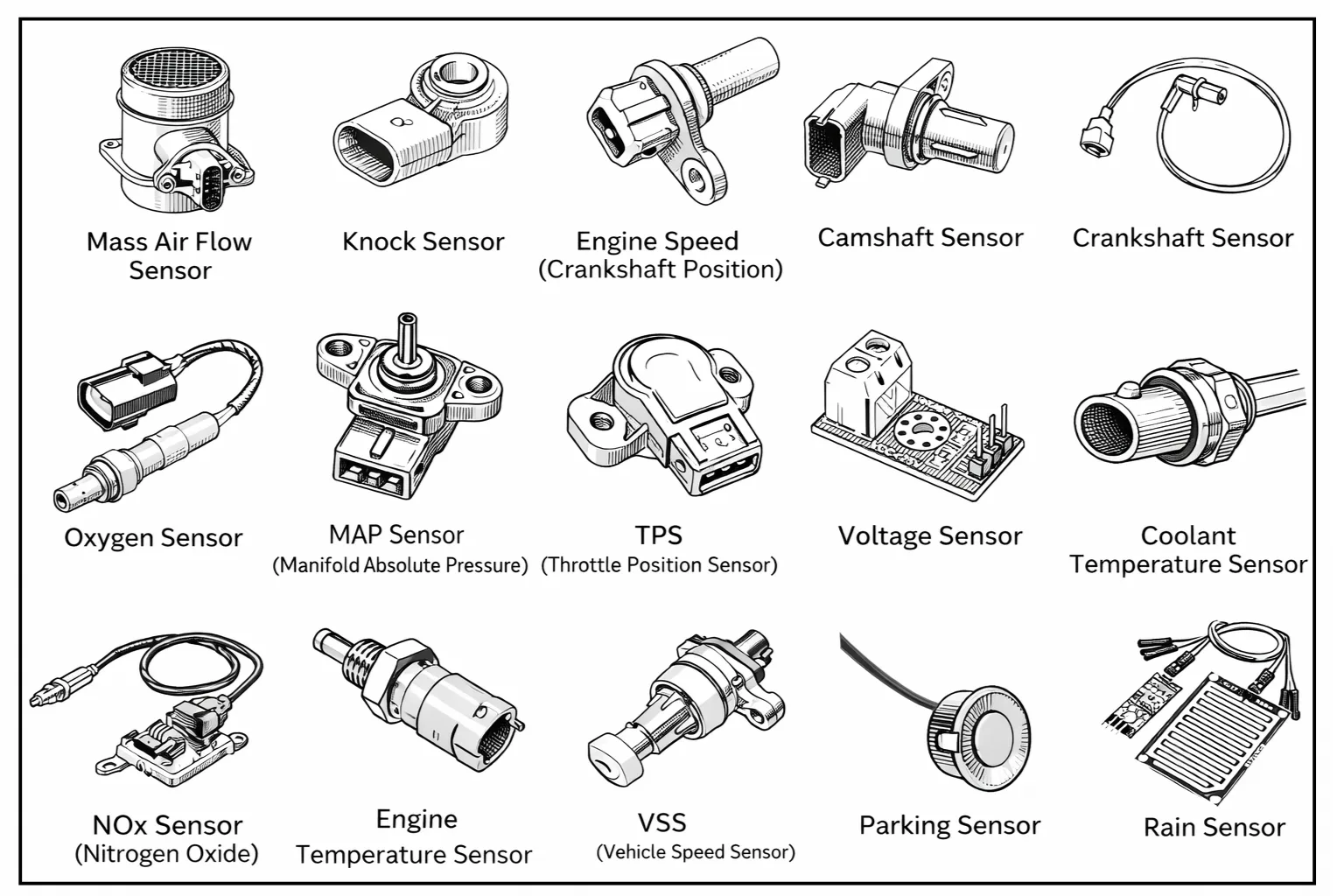OBD-II (On-Board Diagnostics II) codes are standardized codes used by your vehicle’s onboard computer to identify and diagnose problems. By understanding these codes, you can pinpoint the issue and take the necessary steps to fix it.
OBD-II codes are divided into four main categories: PXXXX, UXXXX, CXXXX, and BXXXX.
Most OBD-II codes are directly tied to sensor data. That’s why understanding how car sensors work is essential for accurate diagnosis. Without sensor knowledge, it’s easy to misinterpret a code and replace the wrong part, leading to wasted time and money.
Car Sensors Explained: What They Do and How to Diagnose Them
With the increasing use of electronic systems in modern vehicles, sensors have become a critical part of automotive technology. A car is equipped with numerous sensors that continuously monitor different operating conditions and send real-time data to the Electronic Control…
PXXXX: Powertrain Codes
PXXXX codes are related to the powertrain system, which includes the engine, transmission, and associated drivetrain components. These codes are the most common and typically indicate issues that affect vehicle performance and emissions. Here’s a breakdown of what each digit represents:
P0XXX: Generic or global codes, which are standardized across all manufacturers.
P1XXX: Manufacturer-specific codes, which are unique to a particular vehicle make.
P2XXX: Generic or additional codes.
P3XXX: Hybrid vehicle codes.
UXXXX: Network & Communication Codes
UXXXX codes are related to the vehicle’s communication network. Modern vehicles have multiple control modules (computers) that communicate with each other to ensure smooth operation. U codes indicate problems with the communication between these modules. Here’s a breakdown:
U0XXX: Generic or global codes.
U1XXX: Manufacturer-specific codes.
CXXXX: Chassis Codes
CXXXX codes are related to the chassis system, which includes components like the brakes, suspension, and steering. These codes help identify issues that could affect the vehicle’s handling and safety. Here’s a breakdown:
C0XXX: Generic or global codes.
C1XXX: Manufacturer-specific codes.
BXXXX: Body Codes
BXXXX codes are related to the body system of the vehicle, which includes components like airbags, seatbelts, climate control, and other interior features. These codes help identify issues that could affect the comfort and safety of the vehicle’s occupants. Here’s a breakdown:
- B0XXX: Generic or global codes.
- B1XXX: Manufacturer-specific codes.
P1XXX: Manufacturer Specific Trouble Codes
If your Diagnostic Trouble Code (DTC) begins with P1___, it indicates a manufacturer-specific code. These codes are unique to each vehicle manufacturer and provide more detailed information about issues specific to their vehicles.
For more information on P1 codes, choose your vehicle make below:

